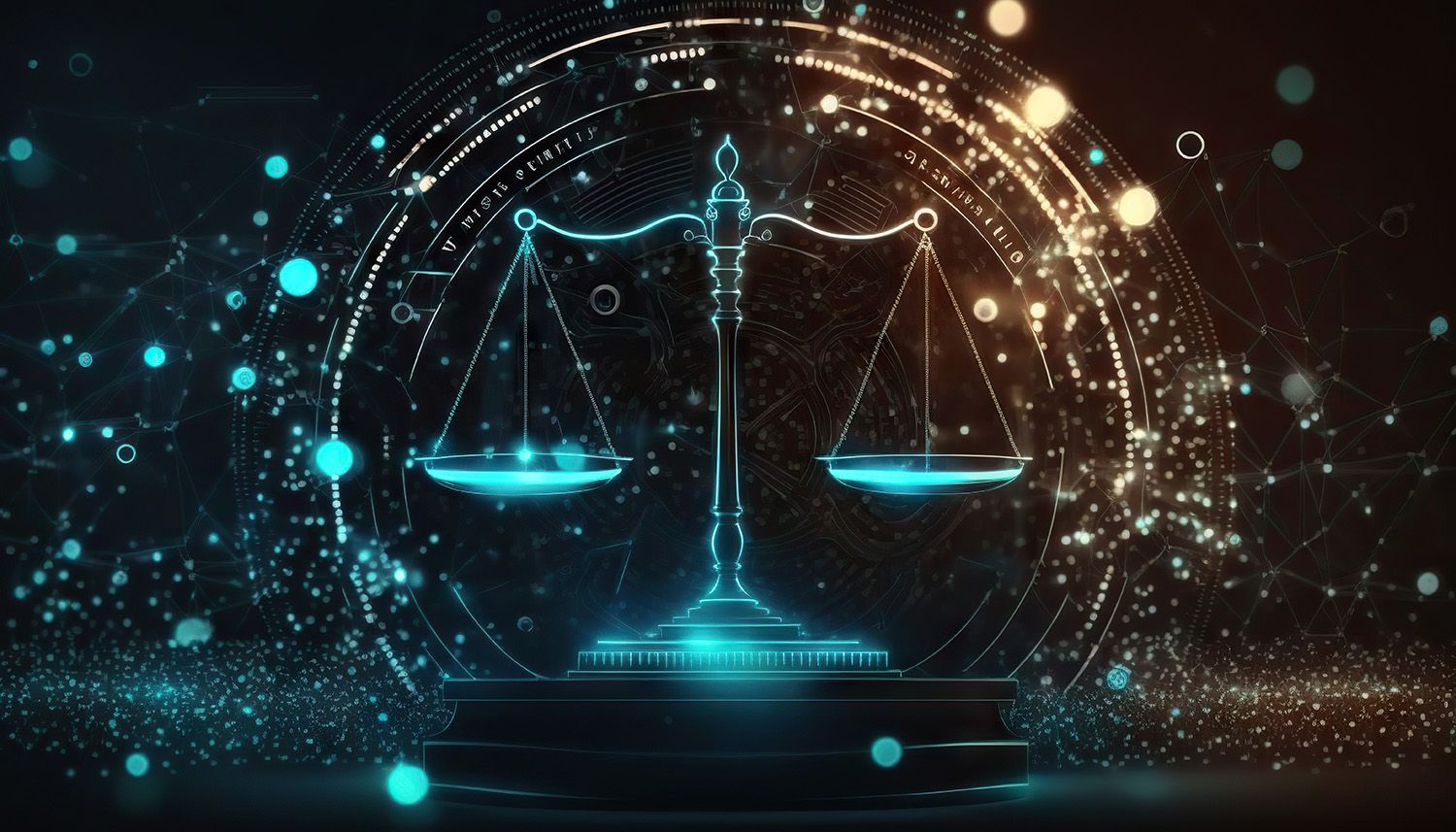EDITED BY:
Professor Michael H. Hoeflich, PhD, Editor-in-Chief
Carrie E. Parker, Legal Editor
Luzianne Stafford, Design & Publishing Editor
PUBLISHED BY: Joseph, Hollander & Craft LLC
PUBLICATION DATE: March 31, 2025
READ & DOWNLOAD FULL-TEXT PDF OF LEMR Vol. 6, No. 3
FEATURE ARTICLE: The Dangerous Client
The practice of law is not ordinarily considered to be a particularly dangerous or risky profession, but crime against lawyers and law firm personnel is an unfortunate reality. Furthermore, lawyers may reasonably believe that legal ethics rules prohibit them from reporting such crimes or providing sufficient information to law enforcement authorities regarding those crimes. This is an intolerable situation. Thankfully, the American Bar Association Standing Committee on Legal Ethics and Professional Responsibility issued Formal Opinion 515 on March 5, 2025, in an attempt to ameliorate this situation.
Opinion 515 recognizes that lawyers may fall victim to clients’ criminal acts in multiple ways including physical violence or by financial crimes. It also recognizes that the general rule of client confidentiality of Rule 1.6 may suggest the lawyer is unable to share information pertinent to reporting, investigating, and prosecuting a client’s criminal conduct. It ultimately concludes, however, that there is an implicit exception to Rule 1.6 when a lawyer is a victim of a client’s crime or someone associated with the lawyer or related to the lawyer is a victim of the client’s crime and the lawyer is a witness to that crime.
. . .
RULES REMINDER: Inadvertent Disclosure of Confidential Information
Although it did not involve legal confidentiality, the recent unfortunate inclusion of an unwanted recipient to a distribution list stands as a stark reminder to lawyers of the possibility of inadvertent disclosure of confidential information by anyone who uses digital communications—whether email, messaging apps, or fax machines. Therefore, any digital device that includes a distribution list or “reply all” feature is a potential source of embarrassment or, in the extreme, ethical violation for an attorney.
Indeed, the inadvertent disclosure of confidential information by a lawyer has been the subject of debate among lawyers for decades, and a number of advisory opinions have been issued about it. That robust discourse eventually led to Model Rule of Professional Responsibility 4.4(b):
A lawyer who receives a document or electronically stored information relating to the representation of the lawyer’s client and knows or reasonably should know that the document or electronically stored information was inadvertently sent shall promptly notify the sender.
Rule 4.4(b) has not been adopted by all jurisdictions, but both Kansas and Missouri have adopted the provision.
It is notable that Rule 4.4(b) differs significantly from rules suggested by many of the advisory opinions that preceded its creation. As it currently exists, Rule 4.4(b) reflects a compromise as to handle such inadvertent disclosures. Comment 2 to Kansas Rule of Professional Conduct 4.4 makes this clear:
Paragraph (b) recognizes that lawyers sometimes receive a document or electronically stored information that was mistakenly sent or produced by opposing parties or their lawyers. A document or electronically stored information is inadvertently sent when it is accidentally transmitted, such as when an email or letter is misaddressed or a document or electronically stored information is accidentally included with information that was intentionally transmitted. If a lawyer knows or reasonably should know that such a document or electronically stored information was sent inadvertently, then this Rule requires the lawyer to promptly notify the sender in order to permit that person to take protective measures. Whether the lawyer is required to take additional steps, such as returning the document or electronically stored information, is a matter of law beyond the scope of these Rules, as is the question of whether the privileged status of a document or electronically stored information has been waived. Similarly, this Rule does not address the legal duties of a lawyer who receives a document or electronically stored information that the lawyer knows or reasonably should know may have been inappropriately obtained by the sending person. For purposes of this Rule, “document or electronically stored information” includes, in addition to paper documents, email and other forms of electronically stored information, including embedded data (commonly referred to as “metadata”), that is subject to being read or put into readable form. Metadata in electronic documents creates an obligation under this Rule only if the receiving lawyer knows or reasonably should know that the metadata was inadvertently sent to the receiving lawyer.
Of course, any lawyer concerned with inadvertent disclosure of confidential information must also focus on Rule 1.6, the fundamental rule on client confidentiality. KRPC 1.6 states:
A lawyer shall make reasonable efforts to prevent the inadvertent or unauthorized disclosure of, or unauthorized access to, information relating to the representation of a client.
Comment 26 addresses inadvertent disclosure directly:
The unauthorized access to, or the inadvertent or unauthorized disclosure of, information relating to the representation of a client does not constitute a violation of paragraph (c) if the lawyer has made reasonable efforts to prevent the access or disclosure. Factors to be considered in determining the reasonableness of the lawyer’s efforts include, but are not limited to, the sensitivity of the information, the likelihood of disclosure if additional safeguards are not employed, the cost of employing additional safeguards, the difficulty of implementing the safeguards, and the extent to which the safeguards adversely affect the lawyer’s ability to represent clients (e.g., by making a device or important piece of software excessively difficult to use). A client may require the lawyer to implement special security measures not required by this Rule or may give informed consent to forgo security measures that would otherwise be required by this Rule. Whether a lawyer may be required to take additional steps to safeguard a client’s information in order to comply with other law, such as state and federal laws that govern data privacy or that impose notification requirements upon the loss of, or unauthorized access to, electronic information, is beyond the scope of these Rules.
As the rules and commentary suggest, special considerations apply whenever lawyers use electronic communication channels. The potential for inadvertent disclosure of confidential information is an issue that every lawyer must consider. Let us all take a moment to double check before hitting send.
ETHICS & MALPRACTICE RESEARCH TIP: New Articles from the Current Index to Legal Periodicals
1. Susan Fortney, The Role of Accountability in Preserving Judicial Independence: Examining the Ethical Infrastructure of the Federal Judicial Workplace, 87 Law & Contemp. Probs. 119 (2024).
Professor Fortney is one of the leading American scholars on judicial ethics and of how judges’ chambers function ethically.
2. Jonah E. Perlin, Client Confidentiality as Data Security, 99 Wash. L. Rev. 781 (2024).
Increasingly, the focus of privacy concerns and client confidentiality are becoming questions of technology. This is a worthwhile article to read.
A BLAST FROM THE PAST: The Importance of the Lawyer’s Oath
…the practice of law…is not simply a business,
to be followed solely for personal gain….[The lawyer’s]
public duties, indeed, are first enumerated in the oaths taken by the candidate. He swears to support the Constitutions of the United States and the State, and to conduct himself “with all good fidelity, as well as to the courts,” as to his clients.
— Harper’s Weekly, July 28, 1906, p. 1052
READ & DOWNLOAD FULL-TEXT PDF OF LEMR Vol. 6, No. 3
About Joseph, Hollander & Craft LLC
Joseph, Hollander & Craft is a mid-size law firm representing criminal defense, civil defense, personal injury, and family law clients throughout Kansas and Missouri. From our offices in Kansas City, Lawrence, Overland Park, Topeka and Wichita, our team of 26 attorneys covers a lot of ground, both geographically and professionally.
We defend against life-changing criminal prosecutions. We protect children and property in divorce cases. We pursue relief for clients who have suffered catastrophic injuries or the death of a loved one due to the negligence of others. We fight allegations of professional misconduct against medical and legal practitioners, accountants, real estate agents, and others.
When your business, freedom, property, or career is at stake, you want the attorney standing beside you to be skilled, prepared, and relentless — Ready for Anything, come what may. At JHC, we pride ourselves on offering outstanding legal counsel and representation with the personal attention and professionalism our clients deserve. Learn more about our attorneys and their areas of practice, and locate a JHC office near you.










